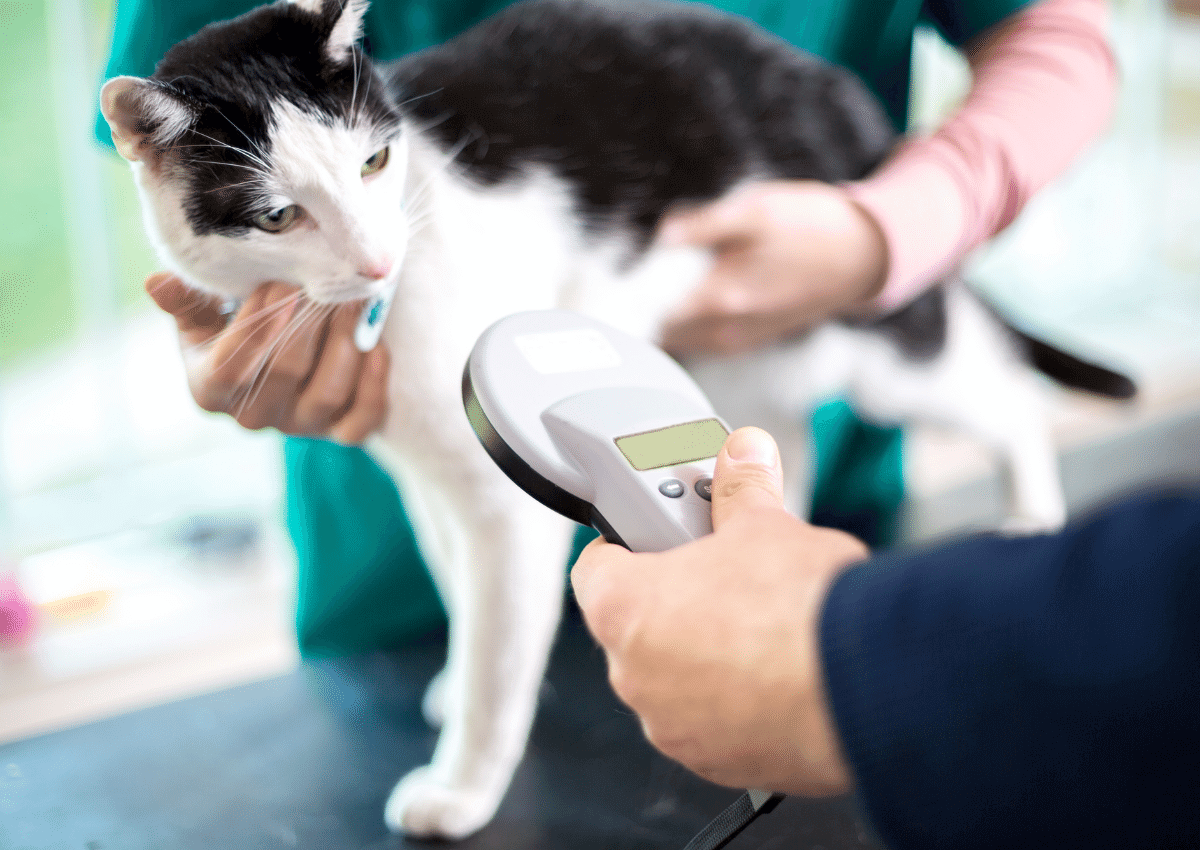pet microchips
Microchips provide a permanent answer to the problem of misplaced pets.
Pet Microchips
Keeping track of your pet may seem like a breeze, but in the rare scenario that your pet becomes lost, a microchip is an ideal way to help locate them. Pet microchips are an ideal way to identify your cat or dog electronically, as they are only about the size of a grain of rice and are implanted just under the skin between the shoulder blades at the back of your pet’s neck. This small tracker sits permanently inside them and is trackable through a unique number located in a microchip database registry. Microchips are often confused with a GPS that tracks your pet, and this is not the case. In order for a microchip to be effective, your dog or cat needs to be found and scanned. From there, the organization or vet that has your pet can contact you via the information linked to your microchip.

Pet Microchips
Keeping track of your pet may seem like a breeze, but in the rare scenario that your pet becomes lost, a microchip is an ideal way to help locate them. Pet microchips are an ideal way to identify your cat or dog electronically, as they are only about the size of a grain of rice and are implanted just under the skin between the shoulder blades at the back of your pet’s neck. This small tracker sits permanently inside them and is trackable through a unique number located in a microchip database registry. Microchips are often confused with a GPS that tracks your pet, and this is not the case. In order for a microchip to be effective, your dog or cat needs to be found and scanned. From there, the organization or vet that has your pet can contact you via the information linked to your microchip.

Keep Information Updated
As pet owners, you must keep the information relating to your pet’s microchip up to date in the case of an emergency. Local shelters and vets will be able to scan your pet’s microchip and contact you through the information in the database. According to AKC Reunite, pets with microchips are 20 times more likely to be reunited with their owners if they are lost.
Does Microchipping Hurt My Pet?
Rest assured that the microchipping process is a breeze for our vet in Bridgeport. It only takes a few seconds and will cause minimal discomfort to your pet. It’s important to remember that the benefits of microchipping your pet will far outweigh the momentary pain that they feel, as doing so greatly increases your chances of being reunited if your pet becomes lost.
When Should Microchipping Be Done?
It’s recommended to microchip your pet as soon as you get them, as this is one of the only effective ways to track them. In the case that you are adopting, make sure to get your pet’s microchip information from the previous owner or from the organization from which you are adopting. If you aren’t sure whether your new pet is microchipped, our vet in Bridgeport is happy to look for it during the first appointment!
Our team at Urban PetRx knows how important your pet is to your family, so it’s important that you don’t take any chances when it comes to your pet’s whereabouts. Schedule an appointment, and we will be happy to ensure your pet is properly microchipped.
Keep Information Updated
Does Microchipping Hurt My Pet?
When Should Microchipping Be Done?
Our team at Urban PetRx knows how important your pet is to your family, so it’s important that you don’t take any chances when it comes to your pet’s whereabouts. Schedule an appointment, and we will be happy to ensure your pet is properly microchipped.
